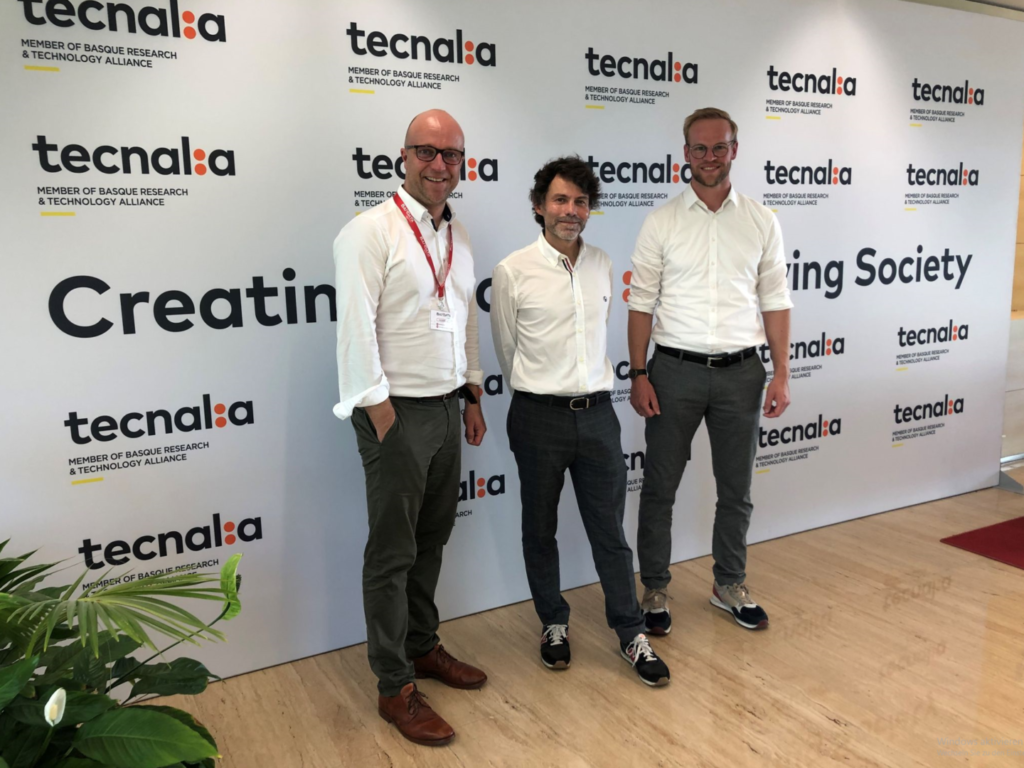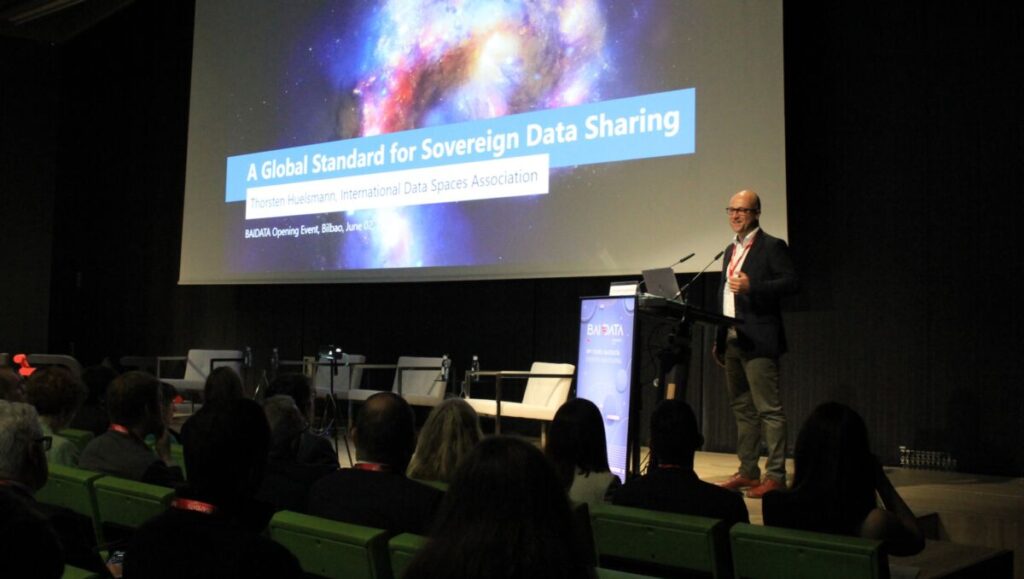BAIDATA is the Iberian initiative for implementing IDS-based and Gaia-X-compliant data spaces, active in supporting sovereign data sharing as enabler for future data ecosystems. The initiative’s headquarters is in Bilbao. The European Commission’s strategy entails the creation of common data spaces ranging in manufacturing, to the healthcare sector, building a single market that ensures Europe’s competitiveness. This requires delivering value and sharing more data with clear guidelines and standards for its use.
Boris Otto, director of the Fraunhofer Institute ISST in Dortmund and member of the Board of IDSA, Gaia-X and Catena-X declared: “Data sovereignty is what will allow us to square the circle, sharing them and exploiting the data’s value, data should be of the community, for the community.”



Gaia-X CEO Francesco Bonfliglio’s call to ‘think big’ reverberated in the whole auditorium. Lars Nagel, CEO of IDSA, signalled the importance of European alignment, which currently is the mission of the Data Space Business Alliance (DSBA).
Discussing the data economy
Several round tables were held to share needs, plans and technological offerings for a sovereign and resilient data economy. The need for high quality data, the benefits of bringing technology closer to the corporate level, its importance for digital and sustainable transformation, and collaboration with the entire value chain were all topics discussed. A panel looking at digital public services agreed on the benefits of data for the public sector and the need for open dialogue to define ethical and sustainable data use that adds value.
Four goals in the coming year
BAIDATA’s president Jose Antonio Echezarra listed his four priorities for the next 12 months:
- First, a BAIDATA accelerator will be established to facilitate the development of data spaces around strategic areas.
- Second, the BAIDATA academy will be launched to support the training of data space professionals, helping companies to connect their business to IDS based and GAIA-X compliant data spaces.
- Third, BAIDATA ecosystems will incorporate data spaces in the R&D activities of public and private entities via pilot projects. Pioneering spaces for the health and energy sector and the mobility and automotive ecosystems are planned.
- Fourth, a data spaces observatory will be created to serve as a liaison with other national and European initiatives and will provide the opportunity to develop guidelines for the adoption of these spaces. Here BAIDATA’s knowledge will be accessible.
And now with the end of this stimulating event begins the exciting work of the BAIDATA association.










